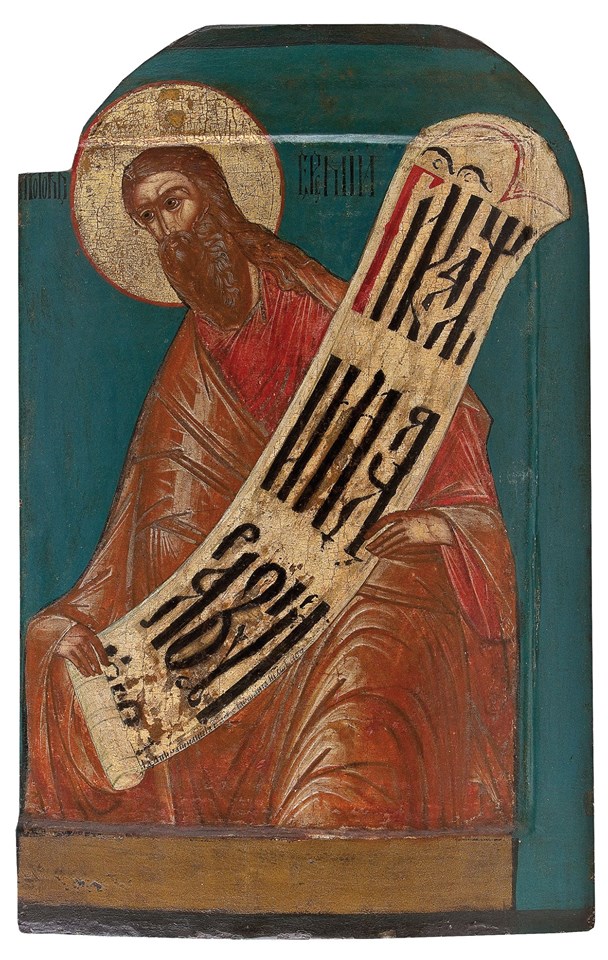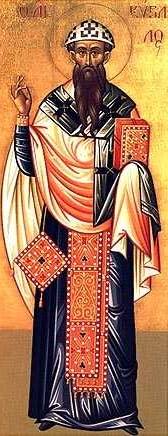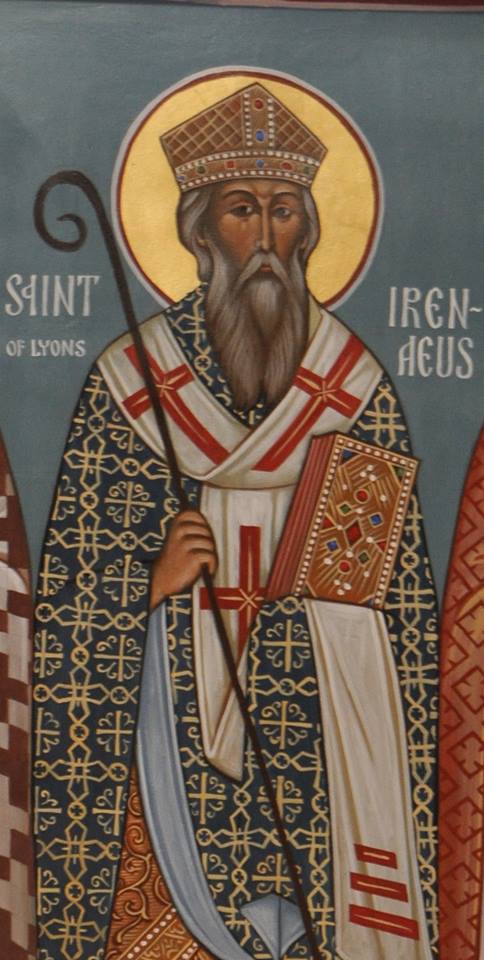We just had three commemorations in a row: Jeremiah (June 26), Cyril of Alexandria (June 27), and Irenaeus of Lyons (June 28). So why do we remember these men?
 JEREMIAH served as God’s prophet, first predicting then later living through the Babylonian siege and the destruction of Jerusalem. You may recognize these very familiar words from Jeremiah 1:4-10:
JEREMIAH served as God’s prophet, first predicting then later living through the Babylonian siege and the destruction of Jerusalem. You may recognize these very familiar words from Jeremiah 1:4-10:
Now the word of the Lord came to me, saying,
“Before I formed you in the womb I knew you,
and before you were born I consecrated you;
I appointed you a prophet to the nations.”
Then I said, “Ah, Lord God! Behold, I do not know how to speak, for I am only a youth.” But the Lord said to me,
“Do not say, ‘I am only a youth’;
for to all to whom I send you, you shall go,
and whatever I command you, you shall speak.
Do not be afraid of them,
for I am with you to deliver you,
declares the Lord.”
Then the Lord put out his hand and touched my mouth. And the Lord said to me,
“Behold, I have put my words in your mouth.
See, I have set you this day over nations and over kingdoms,
to pluck up and to break down,
to destroy and to overthrow,
to build and to plant.”
 CYRIL OF ALEXANDRIA is counted among our church fathers. He served as the archbishop of Alexandria, Egypt, beginning in 412 AD, and his Scripturally-sound teachings about the Trinity and the two-fold nature of Christ (as both God and man) went against popular heresies of the time, deeply influencing later church councils and confessional writings.
CYRIL OF ALEXANDRIA is counted among our church fathers. He served as the archbishop of Alexandria, Egypt, beginning in 412 AD, and his Scripturally-sound teachings about the Trinity and the two-fold nature of Christ (as both God and man) went against popular heresies of the time, deeply influencing later church councils and confessional writings.
 IRENAEUS OF LYONS was a pastor who came a couple hundred years before Cyril. He was also instrumental in standing against heresies like Gnosticism (which denied the goodness of creation), by teaching and confessing that God redeemed His creation through Jesus’ incarnation.
IRENAEUS OF LYONS was a pastor who came a couple hundred years before Cyril. He was also instrumental in standing against heresies like Gnosticism (which denied the goodness of creation), by teaching and confessing that God redeemed His creation through Jesus’ incarnation.
These men would have come only a couple of generations after Jesus and His twelve disciples. The creeds we still recite in church on a weekly and/or annual basis came out of this time period, and you can hear their influence in affirming the Biblical truths necessary for salvation. From the Athanasian Creed (written in the late 400s):
But it is also necessary for everlasting salvation that one faithfully believe the incarnation of our Lord Jesus Christ.
Therefore, it is the right faith that we believe and confess that our Lord Jesus Christ, the Son of God, is at the same time both God and man.
He is God, begotten from the substance of the Father before all ages; and He is man, born from the substance of His mother in this age:
perfect God and perfect man, composed of a rational soul and human flesh;
equal to the Father with respect to His divinity, less than the Father with respect to His humanity.
Although He is God and man, He is not two, but one Christ.
